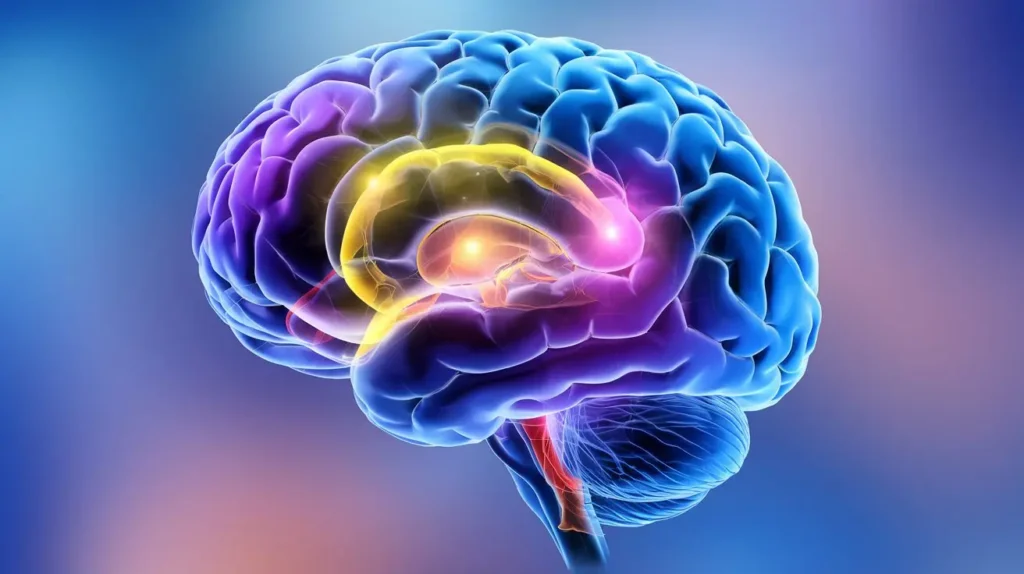Meditation has long been recognized as a practice that enhances mental clarity, relaxation, and emotional balance. However, advanced meditation goes beyond mere relaxation or stress relief. It delves deeper into the layers of consciousness, altering how we perceive ourselves and the world around us. As we progress in our meditation practice, our sense of identity shifts, and our understanding of consciousness expands.
What Is Advanced Meditation?
Advanced meditation refers to practices that cultivate profound states of awareness and consciousness. Unlike basic meditation techniques that focus on breathing or relaxation, advanced meditation invites practitioners to explore deeper aspects of the mind. These practices often involve extended sessions, specific techniques like mindfulness, transcendental meditation, or even spiritual practices that engage deeper layers of consciousness.
At its core, advanced meditation alters the mind in ways that can change how we view our self and reality. As the mind quiets and thoughts diminish, deeper states of awareness emerge, leading to transformative experiences.
Consciousness and Meditation
Consciousness is the state of being aware of and responsive to our surroundings and inner world. It’s a vast, intricate aspect of our existence, yet it often goes unexplored in daily life. Most people experience a limited state of consciousness, one dominated by thoughts, emotions, and external stimuli.
Meditation creates a bridge to higher states of consciousness by quieting the noise in our minds. In advanced meditation, practitioners learn to step beyond ordinary awareness. As we progress, we begin to access heightened states of consciousness, often described as deeper awareness, presence, or even spiritual awakening.
How Advanced Meditation Alters Consciousness
- Expands Awareness
As meditation deepens, our sense of awareness expands beyond ordinary experiences. In advanced states, we become more attuned to subtle changes in our thoughts, emotions, and environment. This expanded awareness helps us view reality from a broader, more holistic perspective. - Reduces the Ego’s Influence
The ego represents the part of the mind that identifies with our thoughts, beliefs, and social roles. It often creates a sense of separation between ourselves and others. Advanced meditation reduces the ego’s influence. Practitioners begin to experience themselves less as separate individuals and more as part of a larger whole. This shift can lead to feelings of interconnectedness and unity with all beings. - Alters Time Perception
In advanced meditative states, our perception of time changes. The linear progression of past, present, and future fades, and time becomes fluid. Moments of stillness feel eternal, while long meditation sessions may pass quickly. This altered sense of time can profoundly shift how we relate to our lives and experiences. - Encounters with Non-Ordinary States of Consciousness
Advanced meditation often leads to encounters with non-ordinary states of consciousness, where the boundaries between the self and the world blur. These states can include out-of-body experiences, a sense of deep presence, or an overwhelming sense of peace and love. Many practitioners describe these experiences as mystical or transcendent.
How Meditation Changes Self-Perception
Meditation has the unique ability to shift how we view ourselves. As our consciousness expands, our self-perception undergoes a transformation. This change can be subtle at first, but with consistent practice, it can profoundly impact how we interact with the world.
- Shifts in Identity
One of the most significant effects of advanced meditation is the shift in identity. Our usual sense of self is tied to our thoughts, memories, and physical experiences. However, in deep meditation, we begin to recognize that we are not our thoughts or our body. This realization creates a new understanding of the self as something much larger and more connected to the universe. - Awareness of Inner Dialogue
Our internal dialogue, the constant chatter of thoughts and judgments, often shapes our self-perception. Advanced meditation helps quiet this inner dialogue. When we observe our thoughts without attaching to them, we realize that they don’t define us. This creates space for a more authentic sense of self, one that is not dictated by thoughts or emotions. - Letting Go of Self-Judgment
Meditation fosters self-compassion by allowing us to observe our thoughts without judgment. Over time, we become less critical of ourselves. The reduction in self-judgment leads to a more accepting and peaceful relationship with ourselves. This shift in self-perception enhances emotional well-being and improves overall mental health. - Experiencing a Unified Self
In everyday life, we often experience ourselves as fragmented—shifting between different roles, emotions, and thoughts. Advanced meditation helps integrate these fragments into a unified self. In this state, we feel more whole and complete, with a deeper understanding of who we truly are beyond the surface-level aspects of our identity. - Realizing the Impermanence of the Self
Meditation teaches us that everything is in a constant state of change, including our sense of self. By recognizing the impermanence of thoughts, emotions, and even the ego, we stop clinging to a fixed identity. This allows us to embrace change and growth more easily, leading to a more fluid and adaptable sense of self.
Advanced Meditation Techniques for Altering Consciousness
If you want to experience the transformative effects of advanced meditation, several techniques can help you reach deeper states of consciousness.
- Mindfulness Meditation
Mindfulness involves focusing on the present moment with non-judgmental awareness. As a practice, it helps to sharpen your attention and deepen your awareness of your thoughts, emotions, and body. In advanced stages, mindfulness meditation allows you to observe the flow of consciousness without attachment, leading to profound shifts in self-perception. - Transcendental Meditation (TM)
Transcendental Meditation is a technique where practitioners use a mantra, or repeated phrase, to quiet the mind. The mantra helps settle the mind into a state of restful awareness. As the practice deepens, TM helps transcend ordinary thought and ego, leading to altered states of consciousness. - Vipassana Meditation
Vipassana is a form of insight meditation. Practitioners focus on observing the sensations of the body and the flow of thoughts without reaction. This practice fosters a deep understanding of impermanence, leading to a shift in consciousness and a realization of the true nature of the self. - Loving-Kindness Meditation (Metta)
Loving-kindness meditation cultivates feelings of love, compassion, and goodwill toward oneself and others. This practice helps dissolve the boundaries of the ego, leading to a deeper sense of connection with others. Advanced practitioners often experience a heightened sense of unity and universal love. - Kundalini Meditation
Kundalini meditation focuses on awakening energy within the body, often described as a coiled serpent at the base of the spine. Through specific postures, breathwork, and focus, practitioners aim to raise this energy through the chakras, leading to heightened states of consciousness and spiritual awakening.
The Benefits of Altered Consciousness and Self-Perception
The changes brought about by advanced meditation have profound benefits for overall well-being and mental health.
- Enhanced Emotional Regulation
By altering our sense of self and consciousness, meditation helps us regulate emotions more effectively. We become less reactive to negative stimuli and more capable of navigating stress with calm and composure. - Greater Self-Awareness
Meditation heightens our awareness of thoughts, emotions, and habits. This increased self-awareness allows us to identify patterns that may no longer serve us, leading to personal growth and self-improvement. - Improved Focus and Clarity
As we cultivate deeper states of consciousness, we experience enhanced focus and mental clarity. Advanced meditation trains the mind to remain present and concentrated, improving productivity and decision-making. - Deeper Connections with Others
Altering our self-perception allows us to see beyond the ego’s limitations. We become more empathetic, compassionate, and understanding of others. This leads to healthier, more meaningful relationships. - Spiritual Growth
For many, advanced meditation serves as a pathway to spiritual growth. As we transcend ordinary consciousness, we connect with deeper aspects of existence and experience moments of profound insight and awakening.
Challenges of Advanced Meditation
While advanced meditation offers numerous benefits, it can also present challenges. As we delve deeper into our consciousness, we may confront unresolved emotions or old patterns that surface. These experiences can be intense, requiring patience and resilience.
Some practitioners also experience a temporary sense of disorientation as their self-perception shifts. It’s important to approach advanced meditation with guidance from an experienced teacher or community to navigate these challenges effectively.
Conclusion
Advanced meditation is a powerful tool for transforming consciousness and self-perception. As we progress in our practice, we experience shifts in identity, deeper awareness, and a broader understanding of reality. By expanding our consciousness, we cultivate emotional balance, improved relationships, and personal growth.
The journey of advanced meditation is a lifelong one, with each session offering new insights and experiences. As you deepen your practice, you’ll find that the changes in consciousness and self-perception permeate all areas of your life, leading to greater peace, clarity, and fulfillment.



